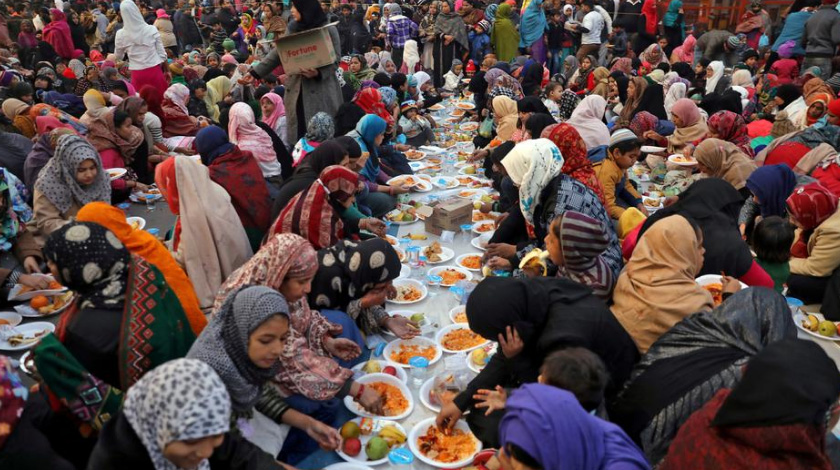New Delhi: In a working-class corner of south Delhi, a nearly one-kilometre stretch of a wide, six-lane highway connecting the national capital with a burgeoning suburb has been blockaded for 10 days.
Hundreds of men and women, some in Muslim burqa robes and many accompanied by children, have occupied the stretch of road at Shaheen Bagh to protest against a new citizenship law (CAA) and a proposed citizens’ register (NRC) that have brought hundreds of thousands of people onto the streets across India. Here however, the protesters have come on their own… just peacefully yet forcefully getting their point across.
India has been rocked by demonstrations since December 12, after Prime Minister Narendra Modi’s government enacted the Citizenship Amendment Act that provides non-Muslim minorities from Afghanistan, Bangladesh and Pakistan who moved here before 2015 a pathway to Indian citizenship.
Some protests across the country have turned violent with 21 lives lost so far. However, at Shaheen Bagh the protests are entirely peaceful. In fact the protesters have put up CCTV cameras in the locality to prevent any untoward incident from happening.
From the maze-like, Muslim-dominated neighbourhood that flanks one side of the highway, a volunteer group of more than 100 people run the site, working in shifts and providing everything from crowd-control and food to bedding and medicines. They are indeed a diverse group.
Tabish Qamar, a banker, runs a four-person perimeter security team, spending the day at the office and his nights at the protest. Wahid Raza, an engineering student on holiday, is in charge of food for between 200-300 people during lunch and dinner, including feeding them plates of meat and biryani. “My job is to ensure no one goes hungry,” he points out.
Umair Khan, 19, works with nearby clinics and pharmacies to provide medical facilities for all protesters. But there has been little to do, he said, because there has been no violence, so far. Humera Sayed, a zoology student from Delhi University, runs a team of 30 women volunteers, helping female protesters access to food, medicines, and restrooms.
“We had initially appealed to women to only stay here till 10 pm,” states Sayed, her hair covered by a bright pink hijab headscarf. “But they aren’t willing to leave this site, till the CAA is withdrawn.”
Deputy Commissioner of Police Chinmoy Biswal said he was negotiating with protesters, and was hopeful the site would empty out soon as local support for the demonstration is waning. The picture is differently portrayed by the protesters… they say that the numbers are increasing. And for now, though, there is little sign the demonstrators plan to give up.
At the heart of the site is a makeshift stage, laid out under a blue tarpaulin, festooned with Indian flags and surrounded by loudspeakers and CCTV cameras installed by protesters.
The masterminds of the intricately organised operation are two young engineers, trained at the Indian Institute of Technology (IIT) – Aasif Mujtaba and Sharjeel, who gave only one name.
Mujtaba said he and Sharjeel identify volunteers, delegate tasks, bring in speakers from outside the area, and made sure the protesters avoid any confrontations with police.
Siddharth Saxena, an accountant from a Hindu family, is one of the handful of volunteers handling funds. Local residents have entrusted him with 10,000 Indian rupees ($140), most of which have gone on banners and stationery, informed Saxena.
But many times that amount has come via donations made in kind, including dozens of mattresses, an assortment of tables that form the foundation of the stage and endless cups of steaming tea that provide warmth on cold winter days.
As the occupation draws on, both Mujtaba and Sharjeel are aware of the risks they face, the possibility of legal action and even their careers getting derailed. But both seem to have accepted the consequences.
“At least tomorrow, I won’t feel that I could have spoken up for my rights but I didn’t,” said Mujtaba. “Whatever happens tomorrow, at least we’ll be happy, that we could have done it, and we did it.”
Agencies
